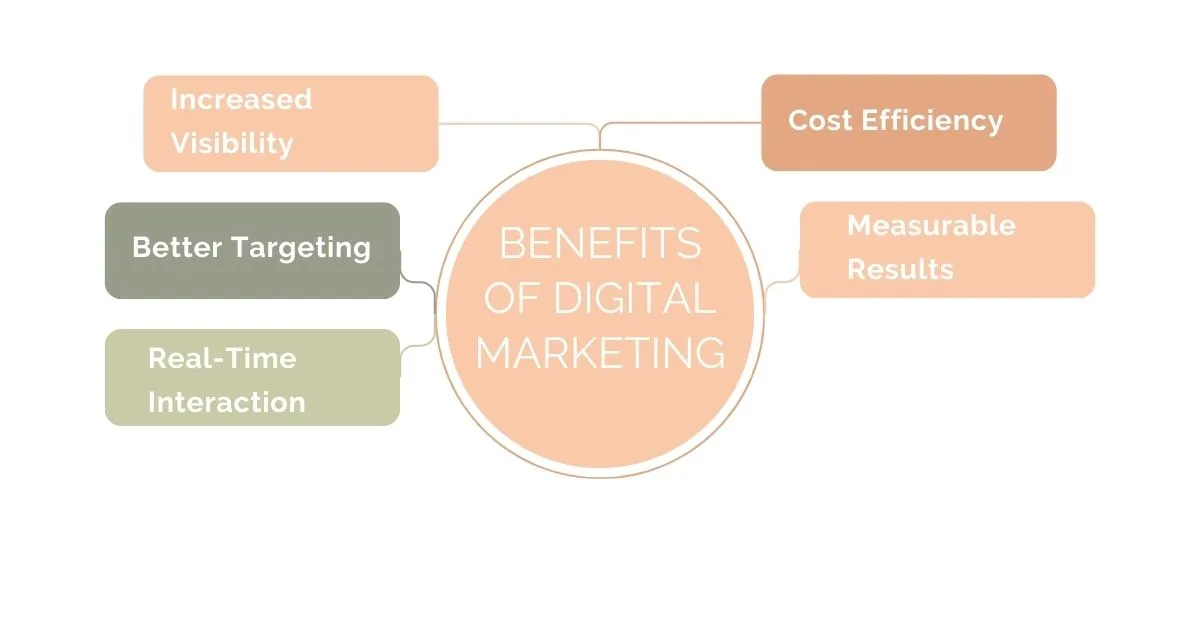Digital marketing has become a cornerstone of successful business strategies. Whether a small local shop or a multinational corporation the internet is where customers search for information share experiences and make purchasing decisions. But how many businesses really need digital marketing? The answer quite simply is nearly all of them.
The Universal Need for Digital Marketing
Small and Medium-Sized Enterprises (SMEs)
For small and medium-sized enterprises (SMEs) digital marketing is not just a tool. It is a lifeline. SMEs often operate with limited budget and need cost effective ways to reach their target audiences.
Offers several advantages:
- Cost-Effectiveness: Unlike traditional advertising methods such as print TV or radio digital marketing allows SMEs to reach a broader audience at a fraction of the cost.
- Targeted Reach: Digital marketing platforms such as Google Ads and social media offer sophisticated targeting options. Businesses can focus their efforts on specific demographics locations and interests ensuring their message reaches the most relevant audience.
- Measurable Results: Tools like Google Analytics and social media insights provide real time data on campaign performance. This allows businesses to adjust their strategies on the fly maximizing return on investment (ROI).
- Brand Awareness and Engagement: Through social media content marketing, and email campaigns SMEs can build and nurture relationships with their customers fostering loyalty and encouraging word-of-mouth referrals.
Large Corporations
For large corporations digital marketing is equally crucial but often serves different purposes.
Why big businesses invest heavily in marketing:
- Global Reach: Large corporations operate on a global scale and digital marketing helps them reach audiences worldwide without the geographic limitations of traditional media.
- Brand Management: Maintaining a strong online presence is vital for brand management. Corporations use digital marketing to shape public perception manage their reputation and respond to customer feedback promptly.
- Data-Driven Decisions: Large businesses have access to vast amounts of data. Digital marketing analytics helps them understand customer behavior preferences and trends, enabling data driven decisions that enhance marketing effectiveness.
- Innovative Campaigns: Marketing allows for creative and innovative campaigns that can go viral capturing the public imagination and significantly boosting brand visibility.
Industry-Specific Needs
Digital marketing is not a one size fits all solution. Different industries have unique requirements and challenges.
Let’s explore how digital marketing can be tailored to specific sectors:
Retail
The retail industry has undergone a massive transformation with the rise of e-commerce.
It is essential for retailers to stay competitive:
- E-Commerce Integration: Online stores rely heavily on marketing to drive traffic and sales. SEO paid search and social media advertising are critical components of their strategy.
- Personalization: Retailers use data to personalize their marketing efforts offering product recommendations tailored promotions and personalized email campaigns to enhance the customer experience.
- Customer Reviews and Reputation Management: Online reviews can make or break a retailer. Marketing helps manage and respond to reviews ensuring a positive online reputation.
Hospitality and Tourism
The hospitality and tourism industry thrives on marketing to attract travelers and guests.
- Visual Content: High quality images and videos are essential in showcasing destinations hotels and experiences. Social media platforms like Instagram and YouTube play a significant role in this sector.
- Customer Reviews: Travelers often rely on reviews when choosing accommodations or activities. Managing online reviews and encouraging satisfied customers to leave positive feedback is crucial.
- Booking and Reservations: Digital marketing drives traffic to booking websites and apps streamlining the reservation process and increasing occupancy rates.
Healthcare
Healthcare providers from local clinics to large hospitals utilize marketing to reach patients and provide valuable information.
- Educational Content: Healthcare organizations use content marketing to educate patients about health conditions treatments and preventive measures.
- Local SEO: Local search engine optimization (SEO) helps healthcare providers appear in local search results making it easier for patients to find nearby services.
- Patient Engagement: Email newsletters social media updates and patient portals keep patients engaged and informed about their health.
Benefits of Digital Marketing
Digital marketing offers numerous benefits that traditional marketing methods cannot match.

Key Advantages:
Increased Visibility
With billions of people using the internet daily marketing ensures that businesses are visible where their customers are. Search engine optimization (SEO) pay-per-click (PPC) advertising and social media marketing are all strategies designed to increase a business online presence.
Better Targeting
Marketing allows for precise targeting based on demographics interests and behaviors. This ensures that marketing efforts are focused on individuals most likely to be interested in the product or service resulting in higher conversion rates.
Real-Time Interaction
Unlike traditional marketing digital marketing enables real-time interaction with customers. Social media platforms live chats and email responses allow businesses to engage with their audience instantly addressing concerns and building relationships.
Cost Efficiency
Marketing is often more cost effective than traditional marketing. For example a well executed SEO strategy can provide long term benefits at a relatively low cost whereas traditional advertising requires continuous spending.
Measurable Results
Marketing provides detailed analytics that show how campaigns are performing. Metrics such as website traffic conversion rates and engagement levels help businesses understand the effectiveness of their marketing strategies and make data driven decisions.
Challenges and Considerations
While marketing offers numerous benefits it also presents challenges that businesses must consider.
Competition
The digital space is highly competitive. Standing out requires a well thought out strategy creativity and continuous optimization. Businesses must stay updated with the latest trends and best practices to remain relevant.
Constant Changes
Marketing platforms and algorithms are constantly evolving. What works today might not work tomorrow. Businesses must be adaptable and willing to experiment with new approaches.
Data Privacy
With the increasing emphasis on data privacy businesses must ensure they comply with regulations such as the General Data Protection Regulation (GDPR). This involves being transparent about data collection and ensuring the security of customer information.
In conclusion: the question of how many businesses need marketing is answered with a resounding “nearly all.” From small local shops to global corporations digital marketing is a vital component of business success in the modern era. Businesses can reach their target audiences more effectively build strong customer relationships and stay ahead of the competition.




